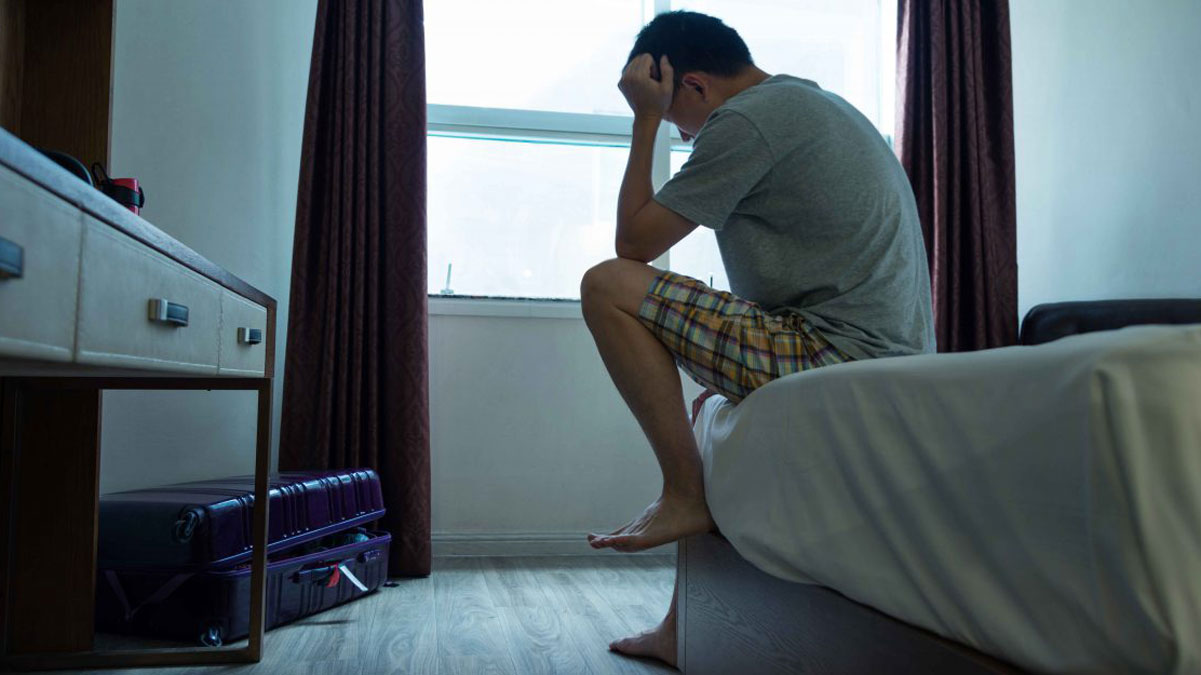During the past decade, the rates of drug overdose, suicide and alcoholism-related diseases have increased exponentially. These three classes of illnesses are collectively called “diseases of despair,” and in 2018 they accounted for over 150,000 deaths in the United States. This has only gotten worse since the COVID-19 pandemic swept across the world.
I hate to begin with such bleak statistics, but it highlights how important emotional health is and how closely it is tied to physical well-being. Unfortunately, there has been little progress in correcting this trend. Substance abuse, including prescription drugs and alcohol, continues to climb; and the consequences have been well documented.
How Can Traditional Medicine Help?
The factors that contribute to diseases of despair are depression, pain and hopelessness. People turn to drugs and alcohol as medication, which, in turn, can result in long-term physical damage. Although acupuncture and traditional medicine can’t cure the root cause of this despair, they have shown to be excellent ways to treat the symptoms of it. Herbal remedies like kratom for example are currently being studied as a means of combatting opioid addiction and withdrawal. If you would like to learn more about this revolutionary alternative approach, including the best kratom strains similar to opiate, you can find some helpful resources online.
Depression
According to the Journal of the American Academy of Nurse Practitioners, stress, anxiety and depression may contribute to 80% of all illnesses. Consistent acupuncture has been shown to increase one’s overall sense of well-being and thus improve baseline immunity. While no amount of needles can reduce the number of stressors a person experiences, it can moderate the biochemical responses to them. In addition, there is clear psychological benefit in taking 30 to 45 minutes to lie quietly and focus on self-care. Subsequently, there is no harm in looking for a specialist rehab for depression if none of the remedies have been effective. You will feel a lot better for doing so.
Pain
As anyone who has suffered from chronic pain understands, it is exhausting and can lead to feelings of hopelessness. While the opioid epidemic has raged across the United States, a lot of research has gone into alternatives for pain management. One study of military personnel found that opioid prescriptions dropped by 45% when paired with traditional medicine. Anti-inflammatory drugs saw a similar reduction of 42%. Traditional medicine is effective in alleviating pain, freeing up energy for other tasks and improving one’s overall outlook on life.
Addiction
Mood-altering substances are often used by people as a means of escape from physical or emotional pain. When used together with standard treatments, acupuncture can help to break the cycle of addiction and reduce cravings, possibly by modulating the mesolimbic pathway – or the “reward center” of the brain.
Numerous studies have shown that acupuncture and the wider umbrella of traditional medicine is effective in treating diseases of despair, reducing the potential risks of pharmaceuticals. This low-cost, noninvasive option can make a significant difference in the lives of people who need help. Anyone who is suffering from symptoms of depression, chronic pain or addiction should consider traditional medicine as an adjunct to their treatment regimen.









 Deering Estate
Deering Estate
 Massage Envy South Miami
Massage Envy South Miami
 Calla Blow Dry
Calla Blow Dry
 My Derma Clinic
My Derma Clinic
 Sushi Maki
Sushi Maki
 Sports Grill
Sports Grill
 The Healthy Kitchen
The Healthy Kitchen
 Golden Rule Seafood
Golden Rule Seafood
 Malanga Cuban Café
Malanga Cuban Café

 Kathleen Ballard
Kathleen Ballard
 Panter, Panter & Sampedro
Panter, Panter & Sampedro
 Vintage Liquors
Vintage Liquors
 The Dog from Ipanema
The Dog from Ipanema
 Rubinstein Family Chiropractic
Rubinstein Family Chiropractic
 Your Pet’s Best
Your Pet’s Best
 Indigo Republic
Indigo Republic




 ATR Luxury Homes
ATR Luxury Homes


 2112 Design Studio
2112 Design Studio
 Hamilton Fox & Company
Hamilton Fox & Company
 Creative Design Services
Creative Design Services
 Best Pest Professionals
Best Pest Professionals
 HD Tree Services
HD Tree Services
 Trinity Air Conditioning Company
Trinity Air Conditioning Company
 Cisca Construction & Development
Cisca Construction & Development
 Mosquito Joe
Mosquito Joe
 Cutler Bay Solar Solutions
Cutler Bay Solar Solutions


 Miami Royal Ballet & Dance
Miami Royal Ballet & Dance
 Christopher Columbus
Christopher Columbus
 Pineview Preschools
Pineview Preschools
 Westminster
Westminster
 Carrollton
Carrollton
 Lil’ Jungle
Lil’ Jungle
 Frost Science Museum
Frost Science Museum
 Palmer Trinity School
Palmer Trinity School
 South Florida Music
South Florida Music
 Pinecrest Orthodontics
Pinecrest Orthodontics
 Dr. Bob Pediatric Dentist
Dr. Bob Pediatric Dentist
 d.pediatrics
d.pediatrics
 South Miami Women’s Health
South Miami Women’s Health

 The Spot Barbershop
The Spot Barbershop
 My Derma Clinic
My Derma Clinic




 Miami Dance Project
Miami Dance Project

 Rubinstein Family Chiropractic
Rubinstein Family Chiropractic
 Indigo Republic
Indigo Republic

 Safes Universe
Safes Universe
 Vintage Liquors
Vintage Liquors
 Evenings Delight
Evenings Delight





 Atchana’s Homegrown Thai
Atchana’s Homegrown Thai
 Baptist Health South Florida
Baptist Health South Florida

 Laser Eye Center of Miami
Laser Eye Center of Miami
 Visiting Angels
Visiting Angels
 OpusCare of South Florida
OpusCare of South Florida

 Your Pet’s Best
Your Pet’s Best





 HD Tree Services
HD Tree Services
 Hamilton Fox & Company
Hamilton Fox & Company


 Creative Design Services
Creative Design Services